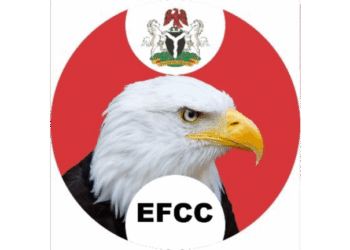Thousands of Iranians turned out to mourn President Ebrahim Raisi in the city of Tabriz on Tuesday after he was killed in a helicopter crash near the Azerbaijan border at the weekend along with his foreign minister and seven others.
State TV broadcast live images of mourners, many of them dressed in black, beating their chests while a truck covered in white flowers carrying the caskets wrapped in the national flag was driven slowly through the crowd.
“Everyone has come to bid farewell to the martyred president and his companions regardless of their faction, ethnicity, or language,” said Tabriz lawmaker Masoud Pezeshkian.
However, although state TV said a large crowd appeared in Tabriz, some insiders see a stark contrast in public grief compared with past commemorations for the deaths of other senior figures in the Islamic Republic’s 45-year history.
While Iran proclaimed five days of mourning for Raisi, there was little of the emotional rhetoric that accompanied the death of Qasem Soleimani, a senior commander of the elite Revolutionary Guards killed by a U.S. missile in 2020 in Iraq, whose funeral drew huge crowds of mourners, weeping with sorrow and rage.
Raisi’s body was flown from Tabriz, the closest major city to the remote crash site, to Tehran airport before heading to the holy Shi’ite Muslim city of Qom.
From there, it will return to the capital to lie at Tehran’s Grand Mosalla Mosque before being transferred to his hometown of Mashahd, in eastern Iran, for burial on Thursday.
Mourners carried posters bearing images of Raisi, Foreign Minister Hossein Amirabdollahian, the Friday prayer leader of Tabriz city, and other officials who were also killed in the crash.
The death of the president came at a time of deepening crisis between the clerical leadership and society at large over issues from tightening social and political controls to economic hardship.
To restore damaged legitimacy following a historic low turnout of around 41% in March’s parliamentary election, Iran’s rulers must stir up public enthusiasm to secure high participation in the early presidential election that will be held on June 28.
But Iranians still have painful memories of the handling of nationwide unrest sparked by the death in custody of a young Iranian-Kurdish woman in 2022, which was quelled by a violent state crackdown involving mass detentions and even executions.
Widespread public anger at worsening living standards and pervasive graft may also keep many Iranians at home.
Some analysts say that millions have lost hope that Iran’s ruling clerics can resolve an economic crisis generated by a combination of U.S. sanctions, mismanagement, and corruption.
Raisi enacted the hardline policies of his mentor, Supreme Leader Ayatollah Ali Khamenei, aimed at entrenching clerical power, cracking down on opponents, and adopting a tough line on foreign policy issues such as the nuclear talks with Washington to revive Iran’s 2015 nuclear pact.
Any candidate entering the race must first be vetted by the Guardian Council, a hardline watchdog that has often disqualified even prominent conservative and moderate officials, meaning the broad direction of policy is unlikely to change.
While widely seen as a leading candidate to take over from the 85-year-old supreme leader when he dies, two sources said Raisi’s name had been taken off a list of potential successors some six months ago because of his sagging popularity.
Raisi’s death has introduced “great uncertainty” in the succession, analysts said, stirring rivalries in the hardliners’ camp over who will succeed Khamenei as the country’s ultimate authority. (Reuters/NAN)











